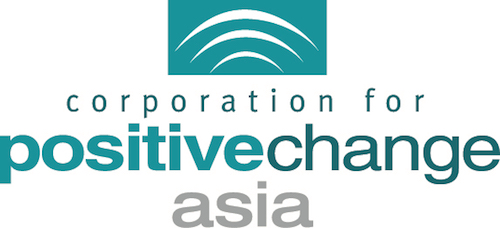Upcoming Events
Upcoming Events
No Events
Appreciative Inquiry is the study of what gives life to human systems when they function at their best. This approach to personal change and organization change is based on the assumption that questions and dialogue about strengths, successes, values, hopes, and dreams are themselves transformational.
Diana Whitney, PhD and Amanda Trosten-Bloom
2016-02-03T05:21:41+00:00
Diana Whitney, PhD and Amanda Trosten-Bloom
http://positivechange.hk/testimonials/458/
Appreciative Inquiry works because it liberates power. It unleashes both individual and organizational power. It brings out the best of people, encourages them to see and support the best of others, and generates unprecedented cooperation and innovation.
Diana Whitney, PhD and Amanda Trosten-Bloom
2016-02-03T05:22:07+00:00
Diana Whitney, PhD and Amanda Trosten-Bloom
http://positivechange.hk/testimonials/459/
Appreciative Inquiry turns command-and-control cultures into communities of discovery and cooperation.
Diana Whitney, PhD and Amanda Trosten-Bloom
2016-02-03T05:22:32+00:00
Diana Whitney, PhD and Amanda Trosten-Bloom
http://positivechange.hk/testimonials/460/
Appreciative Inquiry posits that organizations move in the direction of what they consistently ask questions about, and that the more affirmative the questions are, the more hopeful and positive the organizational responses will be.
Diana Whitney, PhD and Amanda Trosten-Bloom
2016-02-03T05:23:01+00:00
Diana Whitney, PhD and Amanda Trosten-Bloom
http://positivechange.hk/testimonials/461/
The ultimate paradox of Appreciative Inquiry is that it does not aim to change anything. It aims to uncover and bring forth existing strengths, hopes, and dreams—to identify and amplify the positive core of the organization. In this process, people and organizations are transformed. With Appreciative Inquiry, the focus of attention is on positive potential—the best of what has been, what is, and what might be. It is a process of positive change.
Diana Whitney, PhD and Amanda Trosten-Bloom
2016-02-03T05:23:25+00:00
Diana Whitney, PhD and Amanda Trosten-Bloom
http://positivechange.hk/testimonials/462/
Appreciative Leadership is the relational capacity to mobilize creative potential and turn it into positive power—to set in motion positive ripples of confidence, energy, enthusiasm, and performance—to make a positive difference in the world.
Diana Whitney, PhD, Amanda Trosten-Bloom and Kae Rader
2016-02-03T05:23:48+00:00
Diana Whitney, PhD, Amanda Trosten-Bloom and Kae Rader
http://positivechange.hk/testimonials/463/
Appreciative leaders hold each and every person in positive regard. They look through appreciative eyes to see the best of people. They seek to treat all individuals positively, with respect and dignity, no matter their age, gender, race, religion, or culture—even education or experience. They believe that everyone has positive potential—a positive core of strengths and a passionate calling to be fulfilled—and they seek to bring that forward and nurture it.
Diana Whitney, PhD, Amanda Trosten-Bloom and Kae Rader
2016-02-03T05:24:13+00:00
Diana Whitney, PhD, Amanda Trosten-Bloom and Kae Rader
http://positivechange.hk/testimonials/464/
